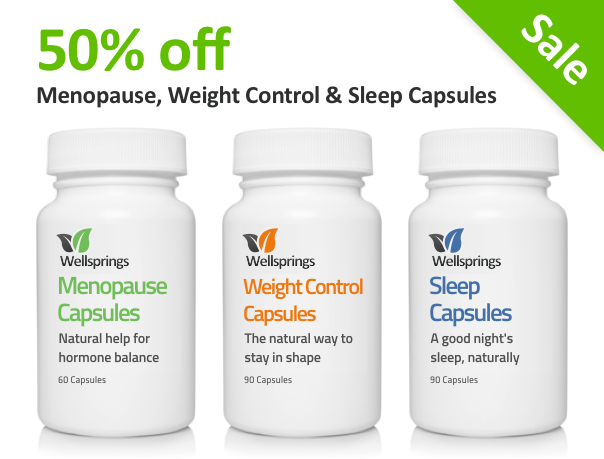The De-Stress Diet
Few of us realise how stress impacts our hormone balance, but there are some everyday things you can do to lessen its effects.
I don’t know anyone who isn’t stressed from time to time, and frankly I would find it hard to believe if they thought they were stress-free. It impacts on our health and wellbeing, and our hormones too so how we handle it can make all the difference.
There are many strategies that can help, and one of them is about what you eat.
How does food reduce stress?
Foods can help tame stress in several ways. Comfort foods, like a bowl of warm oatmeal, boost levels of serotonin, a calming brain chemical. Other foods can cut levels of cortisol and adrenaline, stress hormones that take a toll on the body over time.
A healthy diet can help counter the impact of stress by shoring up the immune system and lowering blood pressure.
Stress-busting foods
When we are stressed our food choices tend to be unhealthy, but a few simple changes can really help us to reduce our stress levels and these are the ones to go for.
Complex carbohydrates
All carbs prompt the brain to make more serotonin. For a steady supply of this feel-good chemical, it’s best to eat complex carbs, which take longer to digest.
Good choices include whole-grain breads, pastas, and breakfast cereals – especially porridge made from oatmeal.
Complex carbs can also help you feel balanced by stabilizing blood sugar levels.
Simple carbohydrates
Dieticians usually recommend steering clear of simple carbs, which include sweets and soft drinks. But in a pinch, these foods can hit the spot. They’re digested quickly, leading to a spike in serotonin.
Carbs at bedtime can speed the release of serotonin and help you sleep better. Since heavy meals before bed can trigger heartburn, stick to something light.
The spike in serotonin doesn’t last long so don’t make these simple carbs a stress-relieving habit.
Oranges
Oranges are a great source of vitamin C and sStudies suggest this vitamin can curb levels of stress hormones while strengthening the immune system.
In one study of people with high blood pressure, blood pressure and levels of cortisol (a stress hormone) returned to normal more quickly when people took vitamin C before a stressful task.
Spinach
Too little magnesium may trigger headaches and fatigue, compounding the effects of stress. One cup of spinach helps you stock back up on magnesium.
If it’s not a favourite vegetable of yours then other green, leafy vegetables are good magnesium sources as are cooked soybeans or a fillet of salmon.
Avocado
One of the best ways to reduce high blood pressure is to get enough potassium, and half an avocado has more potassium than a medium-sized banana.
A little bit of guacamole, made from avocado, might be a good choice when stress has you craving a high-fat treat. Avocados again are high in fat and calories, so watch your portion size.
Raw vegetables
Crunchy raw vegetables can help ease stress in a purely mechanical way. Munching celery or carrot sticks helps release a clenched jaw, and that can ward off tension.
A very healthy option you can combine your crudités with a low fat hummus or similar dip.
Oily fish
Omega-3 fatty acids, found in fish such as salmon and tuna, can prevent surges in stress hormones and may help protect against heart disease, depression, and premenstrual syndrome (PMS).
For a healthy supply of feel-good omega-3s, aim to eat at least 3.5 ounces of oily fish at least twice a week.
Black tea
Drinking black tea may help you recover from stressful events more quickly. One study compared people who drank 4 cups of tea daily for 6 weeks with people who drank something else.
The tea drinkers reported feeling calmer and had lower levels of the stress hormone cortisol after stressful situations.
Milk
Another bedtime stress buster is the time-honoured glass of warm milk. Research shows that calcium eases anxiety and mood swings linked to PMS.
Dieticians typically recommend skim or low-fat milk if you have weight issues.
Nuts
Pistachios, as well as other nuts and seeds, are good sources of healthy fats. Eating a handful of pistachios, walnuts, or almonds every day may help lower your cholesterol, ease inflammation in your heart’s arteries, make diabetes less likely, and protect you against the effects of stress.
Almonds are chock-full of helpful vitamins too: vitamin E to bolster the immune system, plus B vitamins, which may make you more resilient during bouts of stress or depression.
To get the benefits have some nuts every day but don’t overdo it as they are rich in calories.
Non dietary help
Bioidentical progesterone is great for helping reduce stress as it is a natural relaxant and can help with sleep as well as your hormonal imbalance symptoms.
Exercise is one of the best stress-busting strategies to use alongside changing your diet. Aerobic exercise boosts oxygen circulation and spurs your body to make feel-good chemicals called endorphins. Aim for 30 minutes of aerobic exercise three to four times a week
Herbal supplements too can help reduce stress and one of the best studied is St. John’s wort, which has shown benefits for people with mild to moderate depression. Although more research is needed, the herb also appears to reduce symptoms of anxiety and PMS.
Wellsprings Menopause Capsules contains herbs known to reduce anxiety and stress such as Ashgawanda, Damiana and L-Theanine.

















